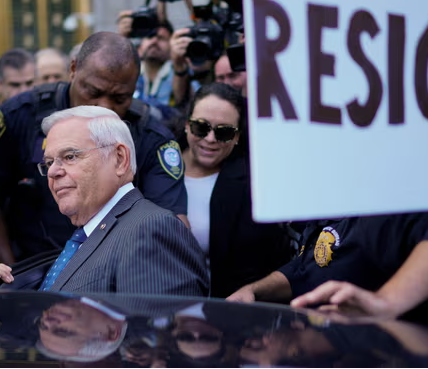Pre-budget uncertainty led to a significant drop in high-value property sales, according to new analysis by Knight Frank.
Rachel Reeves talks pension funds in Mansion House speech
Labour’s pre-Budget uncertainty has delivered a heavy blow to the luxury property market, with stamp duty revenues plummeting by £140million, according to an analysis.
The loss, which comes as a humilating blow to Chancellor Rachel Reeves, stems from a significant drop in high-value property sales, as nervous investors held back amid fears of sweeping tax changes, the Telegraph reports.
Between March and October, there was a shortfall of 107 property sales worth £5million to £10million and 35 sales over £10million, Knight Frank’s research found.
Tom Bill of the Knight Frank estate agency said: “There were so many question marks in the run-up to the election and Budget about how wealth and property would be taxed – capital gains tax, stamp duty and the small print surrounding non-doms.
Mr Bill noted that this uncertainty caused people to hesitate, “particularly at the higher end of the market.”
READ MORE: Investment expert shares how to become an ISA millionaire
Get the latest politics news straight to your phoneJoin us on WhatsApp
Our community members are treated to special offers, promotions, and adverts from us and our partners. You can check out at any time. Read our Privacy Policy

Rachel Reeves’s Stamp Duty raid appears to have backfired (Image: Getty)

Pre-budget uncertainty led to a significant drop in high-value property sales (Image: Getty)
He added: “If you wished to assert there was a £22billion black hole in the UK economy, it has got £140.3million bigger since March thanks to lost stamp duty revenue.”
Meanwhile, homeowners and buyers across the market felt the ripple effects. Mortgage rates surged after Labour’s tax-and-spend Budget drove up Government borrowing costs.
Money markets now anticipate a Bank of England base rate of 4% to 4.25% by December 2025, compared to predictions of under 3.5% just two months ago.
Separate analysis by Rightmove highlights further impacts, estimating that home sellers lost £3,000 on average.
Don’t miss…
Bank raises interest to 5.11% on savings account and earns ‘excellent’ rating [INSIGHT]
Warning to Nationwide, Santander and HSBC customers as mortgage bills increase [ANALYSIS]
Phil Spencer warns first-time buyers LISA ‘might not be for you’ [EXPLAINED]
Asking prices for new listings dropped 1.4% in November – larger than the usual seasonal decline of 0.8% – bringing the average asking price to £366,592.
Rightmove attributed the slump to both pre-Budget anxiety and post-Budget disappointment, stating: “Jitters have turned into post-Budget disappointment, creating new challenges for the housing market, and appear to have caused a larger-than-normal seasonal slowdown in pricing as we head towards Christmas.”
Stamp Duty is set to increase again next year, a move that has been widely criticised by both buyers and sellers.
Stamp Duty is a levy charged on homes costing more than £250,000. It was temporarily raised to this threshold under the former Conservative Government to support more people looking to get on the property ladder.
This threshold is set to be reduced back to £125,000 in March 2025, increasing the tax bill on an average-priced home in England from £2,619 to £5,119.
First-time buyers currently pay Stamp Duty if their home costs more than £425,000, however, this will drop to £300,000 in March.
An HM Treasury spokesperson said: “Removing the outdated non-dom tax regime addresses unfairness in our tax system, with our package of changes in the Autumn Budget also forecast to raise £12.7billion over the next five years to rebuild our public services.
“We’re also committed to making home ownership possible for hard-working Brits, through investing £500million to build 1.5 million affordable homes and stamp duty changes on second homes helping 130,000 more people get on the ladder.”






Most Popular Comments